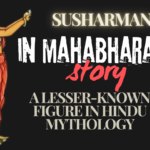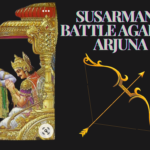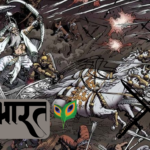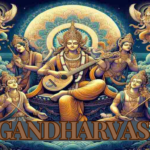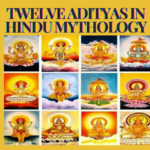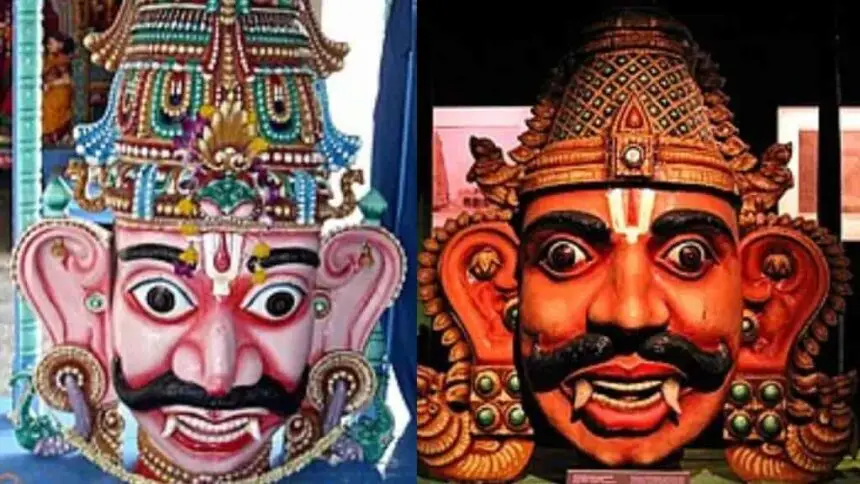Iravan, also known as Aravan in certain texts, is a significant yet lesser-known figure in the grand epic of the Mahabharata. His story intertwines with the great heroes of the Pandava dynasty, and his sacrifice plays a crucial role in the Pandavas’ eventual victory. To fully appreciate Iravan’s importance, we must delve deeply into his lineage, his actions in the great war, and the cultural reverence he commands, especially in certain parts of India.
Iravan’s Parentage and Birth.
Iravan is the son of the mighty warrior Arjuna, one of the five Pandavas, and Ulupi, a Naaga princess. Arjuna’s encounter with Ulupi occurs during his period of exile, a punishment he willingly undertook after disturbing the privacy of Yudhisthira and Draupadi. In his wanderings, Arjuna reaches the realm of the Nagas, where he meets Ulupi. The two spend a night together, and from this union, Iravan is born. Unlike his father, who was a central figure in the Mahabharata, Iravan’s role in the epic, though brief, is filled with significance and valor.
What was the sacrifice of Iravan in Mahabharata?
To guarantee that he doesn’t bite the dust a virgin, he is likewise hitched before he forfeits himself. Thus, Aravan penances himself – cutting him into 32 body parts and proposing to Goddess Kali. Goddess Kali shows up before them and favors them to a successful fight.
How powerful was Iravan?
Iravan was the child of Arjuna and Ulupi. He was an extraordinary Maharatha fighter who was a specialist in deceptions. Accomplishments OF IRAVAN ON KURUKSHETRA * On the first day of Kurushetra war, Iravan battled against Ruler Shrutayusha.
Iravan’s Role in the Kurukshetra War.
Despite being a relatively lesser-known character, Iravan’s contribution to the Kurukshetra war was pivotal. As the war between the Pandavas and Kauravas raged on, the seventh day of battle proved to be a critical juncture. According to the prophecy, the Pandavas could only ensure victory if they offered a sacrifice to Goddess Kali. The sacrifice had to be a man who bore 36 sacred marks on his body, a condition that narrowed the choices down to a very few. Among the Pandavas, Krishna and Arjuna had these marks, but their lives were indispensable.
Iravan also had these sacred marks and offered himself willingly to ensure the Pandavas’ triumph. However, before the sacrifice, Iravan made a heartfelt request: he wished to marry and have a wife who would mourn his death. This unusual yet poignant request underscores Iravan’s desire for human connection and love, even in the face of impending death.
Did Krishna marry Iravan?
Shri Krishna became Mohini and hitched Iravan, along these lines satisfying his last wish. This, after the demise of Iravan, yet Mohini additionally sobbed and was troubled like a widow. Consequently Iravan is revered as the Master of Transgenders.
The Myth of Iravan and Mohini.
Iravan’s request presented a unique challenge, as no woman wanted to marry a man destined for immediate death. Krishna, the Pandavas’ strategist and divine guide, took on this challenge in a remarkable way. Assuming the form of Mohini, Krishna married Iravan, thus fulfilling his wish. This fascinating episode highlights the fluidity of gender and identity in Indian mythology, where even divine beings adapt to circumstances for the greater good.
Iravan’s marriage to Mohini was short-lived, as the very next day, he was sacrificed. His death was not in vain; it secured the Pandavas’ victory in the Kurukshetra war. In South India, especially in Tamil Nadu, Iravan is revered as Kuttantavar, and his story is celebrated with great devotion. The annual festival of Koovagam honors his sacrifice and the marriage with Mohini, where transgender communities celebrate Iravan as a deity who understands their experiences and struggles.
The Legacy of Iravan.
Iravan’s legacy transcends his brief appearance in the Mahabharata. He is a symbol of ultimate sacrifice, loyalty, and the intersection of divinity and humanity. In certain parts of India, particularly Tamil Nadu, Iravan is worshipped as a deity, with rituals and festivals commemorating his story. The Koovagam festival, held annually, is a testament to Iravan’s enduring cultural significance. During this festival, transgender individuals marry Iravan, reenacting the divine marriage between him and Mohini. This event symbolizes both celebration and mourning, as it culminates in the ritual widowhood of the participants, echoing Iravan’s sacrifice.
Iravan’s story also resonates with the LGBTQ+ community, as his marriage to Mohini, a form of Krishna, represents the fluidity of gender roles in mythology. In modern interpretations, Iravan has become a symbol of inclusivity, where his story is seen as one of acceptance and understanding of diverse identities.
Disclaimer : While Writing this post have taken some content reference from different blog posts around the web and also chatgpt. If you think I have directly copy paste your content ,please contact me . I assure you that I will remove the content within 24 hours.
